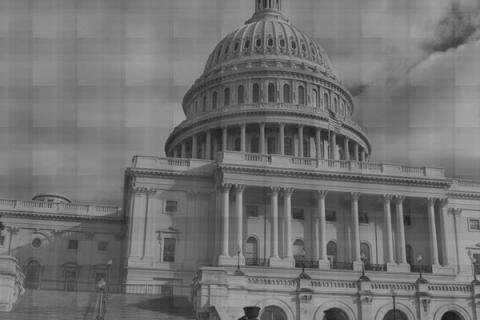The year was 1994. Leading by 5% on Gallup's generic ballot poll, the Republican Party was poised to take control of the U.S. House of Representatives for the first time in 40 years. In fact, the Democrats had run the House for all but four of the preceding 62 years of U.S. history.
In a truly revolutionary political move, the Republican Party released the Contract with America, which outlined in precise public policy terms exactly what the Republicans would do if they took control of the House. When election day came, the Republicans gained 54 seats and their victory was hailed as "The Republican Revolution."
But did the electoral revolution result in a public policy revolution? Did the dramatic change in the partisan composition of the House bring about a dramatic change in governance? Did House Speaker Newt Gingrich and the rest of his party make good on their promises to bring more transparency, accountability, and fiscal responsibility to Washingon?
Six years later, Ed Crane, the president of the libertarian Cato Institute would lament in Forbes magazine that "the combined budgets of the 95 major programs that the Contract with America promised to eliminate have increased by 13%."
Fast forward ten years, and with the GOP on the verge of another decisive victory, Republican House leaders unveiled their own public policy agenda on Thursday, September 23 with less than two months before the midterm election.
Billed as the "Pledge to America," the document (which was authored by a former lobbyist for AIG, Exxon, Pfizer, and other major corporations) purports to set "a new governing agenda built on the priorities of our nation, the principles we stand for and America's founding values."
The unveiling set off a firestorm of conservative commentary this week, ranging from the cautious approval of the National Review, which published a piece from the editors entitled "We'll Take the Pledge," to the sharp criticism of the editor at RedState.com, who called the pledge "Perhaps the Most Ridiculous Thing to Come Out of Washington Since George McClellan."
In the end, will the Pledge to America reform Washington with more transparency, accountability, and fiscal responsibility, or will it fail to make a substantial difference in the Washington status quo like its predecessor, the Contract with America?
While promising to put Washington "on the path" to a balanced budget, it makes no explicit promise or guarantee of balancing the out-of-control Federal budget. It certainly doesn't offer a balanced budget requirement as many notable Tea Party candidates have called for.
Besides, the pledge offers multiple policies that will actually work to exacerbate Washington's budget problem. Extending Bush's tax cuts while increasing funds for the Pentagon's already bloated budget and funding a missile defense program (as if we still had the Soviets to worry about) will only make deficits worse.
And while the Republicans pledge to reform Congress with a citation of constitutional authority for every bill and a three day waiting period before voting on bills, waiting three days to vote on bills that now run into the thousands of pages in length is hardly less negligent nor more transparent than waiting only one.
In the end, Republicans who cheerfully recall 1994 and say that history is repeating itself, might be disappointed to learn just how right they are.

